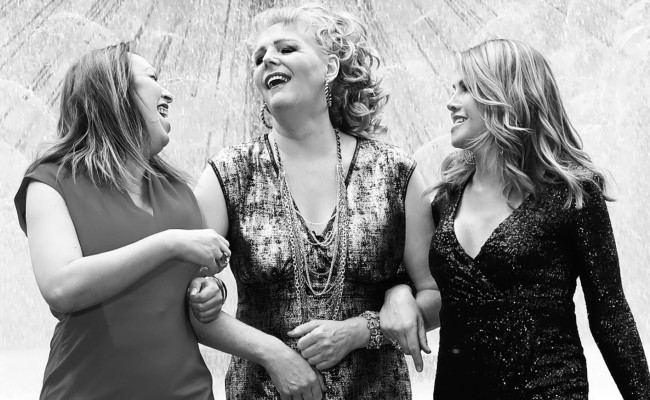A couple of weeks back, on a balmy Saturday night in Sydney’s inner west, Carriageworks was alive with verve. Streaming in and out of one glimmering set of doors were the Sissy Ball attendees, the setting sun giving way to the light ricocheting off mirror-ball costumery – a jamboree of identity, attitude and history. A short walk down from there, we queued for another event – most of us far less fabulously dressed, but equally ready for a divine celebratory night of our own in ‘Trans stories’.
One of several Queer Thinking events hosted as part of the celebration of the fortieth Mardi Gras, ‘Trans stories’ was a dive into the transgender history and narratives of modern Australia, from the Sydney club culture of the mid twentieth century to a new wave of artists and performers. Featuring the words and voices of Kaya Wilson, Colleen Windsor, organiser Peta Friend, Lisa Freshwater and AJ Brown, Chrissy Doyle, Katherine Maver, Mama Alto, and living legend Karen Chant, each bite-sized recital contained the words ‘this is my trans story’ woven in, speaking to the multitudes that our broad community contains.
After an all-too-brief musical number to begin, we were treated in turn to Chant recalling a history of MCing a great number of the ‘all-male revue’ clubs of Kings Cross; Windsor describing with a smile her time in Les Girls and adventures since; Friend talking about the community that helped her arrive at a place of being able to come out; Maver recounting her experiences of being both closeted and out in corporate settings; and the trailblazing that each of these life stories allowed.
Later in the night, Freshwater and Brown spoke together on how their identities as individuals and a couple were required to shift through Brown’s transition; this was followed by Doyle speaking candidly on the struggles she faced and love she had since found. Wilson then poetically rendered his experience of losing loved ones as his sense of self and their perceptions shifted, before Alto closed out the evening, speaking beautifully on diasporic experiences of gender, including her own.
I was struck not only by the stories that were presented on the night, but also by those that weren’t – so often our community is considered to be a monolith of identity and of opinion, when in fact even this small slice of life showed our deep and beautiful diversity.
I will admit, too, that at first the persistence of the phrase ‘living my truth’ really got to me, continuously sticking out like a twee sore thumb – it so often being used to refer to our ‘journeys’ by others who have no interest in learning about the realities of our lives – but inside the walls of Carriageworks that night, it felt genuine. We were witnessing truth, in real time, right there. Not only did the performers speak of a truth lived, we got a glimpse of living it alongside them.
When speaking to some of the performers before the event, a number mentioned not having grown up around trans people or having being aware of trans stories, with Alto noting that she ‘grew up around strong women and queer people, but not necessarily other trans people’. A common thread emerged in these conversations: the importance and the power of talking about these experiences to cisgender audiences, but of also engaging with trans peers, friends and colleagues. It is deeply clear that these stories are about us and by us, but they are also for us.
Many of the performers told me about how the experience of writing and preparing for ‘Trans stories’ was confronting at times; as Friend said, ‘when you are talking about something as deeply personal as your transition you do feel exposed and rather vulnerable.’ Despite this, they also spoke of the joy of being there and being heard (a joy visible on the cast’s faces that night) and in the power of their words. Wilson noted that he felt that power as a responsibility, and that if he were able to engage the audience, then ‘we can be a little bit closer and you will be a little bit kinder’.
When Mama Alto, opened the evening with a divine piano-accompanied rendition of ‘Somewhere over the Rainbow’, she spoke of the way her community shaped her identity: ‘finding queer communities, and trans communities, is a liberating process of knowing and embracing the self.’
On nights like this, seeing people on stage and speaking power to their truth, we can definitely see change – not necessarily directly, but in hearing about our history, and how far we have come to be able to be here. ‘Trans stories’ can only exist on the shoulders of those with stories untold, and it brings with it a carving out of space for remembering them, and their many decades of invisibility and of struggle.
Friend put it well: ‘I still believe the wider community has a lot of misconceptions about transgender people … [but] by telling our stories we draw people into our lives and we demystify our experience. I always say that trans stories are just human stories.’
As we left the room and re-entered the warm evening and the world beyond, it truly did feel that way. But I also hold to the importance of having spaces that are trans curated, trans lead and trans focused. A great power lies in this, one I hope to see more of – more often, more diversely and more widespread. As Wilson commented to me, ‘only we can tell our stories if they are to be ours.’
Image: promotional image for ‘Trans stories’ at Carriageworks.






